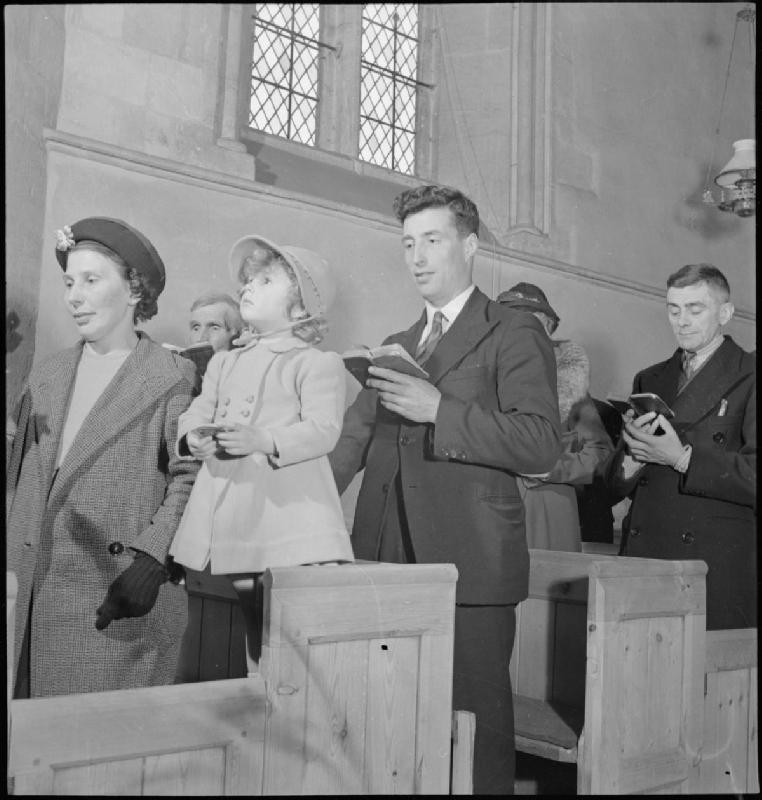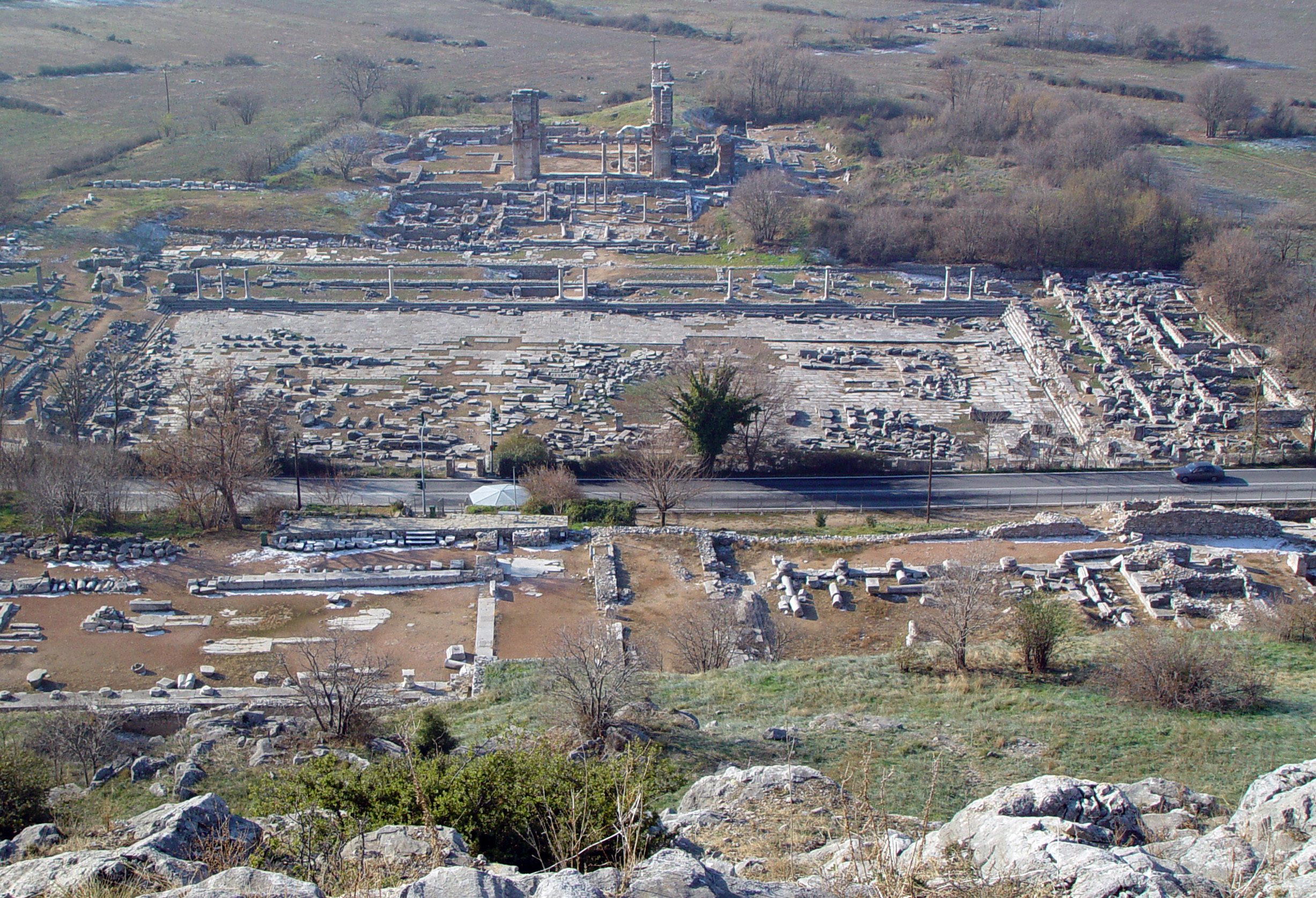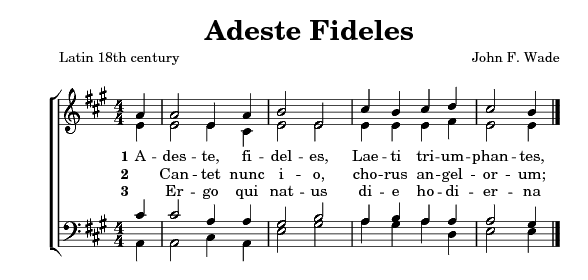|
Blessed Assurance
"Blessed Assurance" is a well-known Christian hymn. The lyrics were written in 1873 by blind hymn writer Fanny Crosby to the music written in 1873 by Phoebe Knapp. History Crosby was visiting her friend Phoebe Knapp as the Knapp home was having a large pipe organ installed. The organ was incomplete, so Mrs. Knapp, using the piano, played a new melody she had just composed. When Knapp asked Crosby, "What do you think the tune says?", Crosby replied, "Blessed assurance; Jesus is mine." The hymn appeared in the July 1873 issue of Palmer's ''Guide to Holiness and Revival Miscellany'', a magazine printed by Dr. and Mrs. W. C. Palmer of 14 Bible House, New York City. It appeared on page 36 (the last page) with complete text and piano score, and indicated it had been copyrighted by Crosby that year. It is not certain that this was the first printing of the hymn, but it certainly helped to popularize what became one of the most beloved hymns of all time. The popular song reflects Crosby ... [...More Info...] [...Related Items...] OR: [Wikipedia] [Google] [Baidu] |
Phoebe Knapp
Phoebe Knapp ( Palmer; March 9, 1839 – July 10, 1908) was an American composer of music for hymns and an organist. Biography Knapp was born in New York City. Her parents were Walter C. Palmer and Phoebe (Worrall) Palmer. She married Joseph Fairchild Knapp, one of the founders and the second president of the Metropolitan Life Insurance Company. He had a pipe organ installed in their apartment. She and her husband were members of the John Street Methodist Episcopal Church in New York City. The hymn writer Fanny Crosby was also a member of that church and a friend of Palmer. She wrote over 500 hymn tunes, the most familiar being the tune now called "Assurance" for Fanny Crosby's lyrics ''Blessed Assurance''. Another hymn by Fanny Crosby for which Knapp wrote the music is "Nearer the Cross". Other hymn tunes by Knapp include "Albertson", the tune for "Jesus Christ is Passing By" by J. Denham Smith, and for "When My Love to Christ Grows Weak" by John R. Wreford. Her tune " ... [...More Info...] [...Related Items...] OR: [Wikipedia] [Google] [Baidu] |
Hymn
A hymn is a type of song, and partially synonymous with devotional song, specifically written for the purpose of adoration or prayer, and typically addressed to a deity or deities, or to a prominent figure or personification. The word ''hymn'' derives from Greek (''hymnos''), which means "a song of praise". A writer of hymns is known as a hymnist. The singing or composition of hymns is called hymnody. Collections of hymns are known as hymnals or hymn books. Hymns may or may not include instrumental accompaniment. Although most familiar to speakers of English in the context of Christianity, hymns are also a fixture of other world religions, especially on the Indian subcontinent ('' stotras''). Hymns also survive from antiquity, especially from Egyptian and Greek cultures. Some of the oldest surviving examples of notated music are hymns with Greek texts. Origins Ancient Eastern hymns include the Egyptian '' Great Hymn to the Aten'', composed by Pharaoh Akhenaten; the Hu ... [...More Info...] [...Related Items...] OR: [Wikipedia] [Google] [Baidu] |
Fanny Crosby
Frances Jane van Alstyne (née Crosby; March 24, 1820 – February 12, 1915), more commonly known as Fanny J. Crosby, was an American mission worker, poet, lyricist, and composer. She was a prolific hymnist, writing more than 8,000 hymns and gospel music, gospel songs, with more than 100 million copies printed. She is also known for her teaching and her rescue mission work. By the end of the 19th century, she was a household name. Crosby was known as the "Queen of Gospel Song Writers" and as the "Mother of modern congregational singing in America", with most American hymnals containing her work. Her gospel songs were "paradigmatic of all revival music", and Ira Sankey attributed the success of the Moody and Sankey evangelical campaigns largely to Crosby's hymns. Some of Crosby's best-known songs include "Pass Me Not, O Gentle Saviour", "Blessed Assurance", "Jesus Is Tenderly Calling You Home", "Praise Him, Praise Him", "Rescue the Perishing", and "To God Be the Glory". So ... [...More Info...] [...Related Items...] OR: [Wikipedia] [Google] [Baidu] |
Christianity
Christianity is an Abrahamic monotheistic religion based on the life and teachings of Jesus of Nazareth Jesus, likely from he, יֵשׁוּעַ, translit=Yēšūaʿ, label=Hebrew/Aramaic ( AD 30 or 33), also referred to as Jesus Christ or Jesus of Nazareth (among other names and titles), was a first-century Jewish preacher and religious .... It is the Major religious groups, world's largest and most widespread religion with roughly 2.38 billion followers representing one-third of the global population. Its adherents, known as Christians, are estimated to make up a majority of the population in Christianity by country, 157 countries and territories, and believe that Jesus in Christianity, Jesus is the Son of God (Christianity), Son of God, whose coming as the Messiah#Christianity, messiah was Old Testament messianic prophecies quoted in the New Testament, prophesied in the Hebrew Bible (called the Old Testament in Christianity) and chronicled in the New Testamen ... [...More Info...] [...Related Items...] OR: [Wikipedia] [Google] [Baidu] |
Hymn
A hymn is a type of song, and partially synonymous with devotional song, specifically written for the purpose of adoration or prayer, and typically addressed to a deity or deities, or to a prominent figure or personification. The word ''hymn'' derives from Greek (''hymnos''), which means "a song of praise". A writer of hymns is known as a hymnist. The singing or composition of hymns is called hymnody. Collections of hymns are known as hymnals or hymn books. Hymns may or may not include instrumental accompaniment. Although most familiar to speakers of English in the context of Christianity, hymns are also a fixture of other world religions, especially on the Indian subcontinent ('' stotras''). Hymns also survive from antiquity, especially from Egyptian and Greek cultures. Some of the oldest surviving examples of notated music are hymns with Greek texts. Origins Ancient Eastern hymns include the Egyptian '' Great Hymn to the Aten'', composed by Pharaoh Akhenaten; the Hu ... [...More Info...] [...Related Items...] OR: [Wikipedia] [Google] [Baidu] |
Paul The Apostle
Paul; grc, Παῦλος, translit=Paulos; cop, ⲡⲁⲩⲗⲟⲥ; hbo, פאולוס השליח (previously called Saul of Tarsus;; ar, بولس الطرسوسي; grc, Σαῦλος Ταρσεύς, Saũlos Tarseús; tr, Tarsuslu Pavlus; la, Paulus Tarsensis AD), commonly known as Paul the Apostle and Saint Paul, was a Apostles in the New Testament, Christian apostle who spread the Ministry of Jesus, teachings of Jesus in the Christianity in the 1st century, first-century world. Generally regarded as one of the most important figures of the Apostolic Age, he founded Early centers of Christianity, several Christian communities in Asia Minor and Europe from the mid-40s to the mid-50s AD. According to the New Testament book Acts of the Apostles, Paul was a Pharisees, Pharisee. He participated in the Persecution of Christians in the Roman Empire, persecution of early Disciple (Christianity), disciples of Jesus, possibly Hellenistic Judaism, Hellenised diaspora Jews converte ... [...More Info...] [...Related Items...] OR: [Wikipedia] [Google] [Baidu] |
Philippians
The Epistle to the Philippians is a Pauline epistle of the New Testament of the Christian Bible. The epistle is attributed to Paul the Apostle and Timothy is named with him as co-author or co-sender. The letter is addressed to the Christian church in Philippi. Paul, Timothy, Silas (and perhaps Luke) first visited Philippi in Greece (Macedonia) during Paul's second missionary journey from Antioch, which occurred between approximately 49 and 51 AD. In the account of his visit in the Acts of the Apostles, Paul and Silas are accused of "disturbing the city". There is a general consensus that Philippians consists of authentically Pauline material, and that the epistle is a composite of multiple letter fragments from Paul to the church in Philippi. These letters could have been written from Ephesus in 52–55 AD or Caesarea Maritima in 57–59, but the most likely city of provenance is Rome, around 62 AD, or about 10 years after Paul's first visit to Philippi. Harris, Stephen ... [...More Info...] [...Related Items...] OR: [Wikipedia] [Google] [Baidu] |
Assurance (theology)
As a general term in theological use, assurance refers to a believer's confidence in God, God's response to prayer, and the hope of eternal salvation. In Protestant Christian doctrine, the term "assurance", also known as the Witness of the Spirit, affirms that the inner witness of the Holy Spirit allows the Christian disciple to know that he or she is justified. Based on the writings of St. Augustine of Hippo, ''assurance'' was historically a very important doctrine in Lutheranism and Calvinism, and remains a distinguishing doctrine of Methodism and Quakerism, although there are differences among these Christian traditions. Hymns that celebrate the witness of the Holy Spirit, such as " Blessed Assurance" are sung in Christian liturgies to celebrate the belief in assurance. John Wesley and Methodism John Wesley believed that all Christians have a faith which implies an ''assurance'' of God's forgiving love, and that one would feel that ''assurance'', or the "witness of the Spir ... [...More Info...] [...Related Items...] OR: [Wikipedia] [Google] [Baidu] |
Hymns By Fanny Crosby
A hymn is a type of song, and partially synonymous with devotional song, specifically written for the purpose of adoration or prayer, and typically addressed to a deity or deities, or to a prominent figure or personification. The word ''hymn'' derives from Greek (''hymnos''), which means "a song of praise". A writer of hymns is known as a hymnist. The singing or composition of hymns is called hymnody. Collections of hymns are known as hymnals or hymn books. Hymns may or may not include instrumental accompaniment. Although most familiar to speakers of English in the context of Christianity, hymns are also a fixture of other world religions, especially on the Indian subcontinent (''stotras''). Hymns also survive from antiquity, especially from Egyptian and Greek cultures. Some of the oldest surviving examples of notated music are hymns with Greek texts. Origins Ancient Eastern hymns include the Egyptian ''Great Hymn to the Aten'', composed by Pharaoh Akhenaten; the Hurrian ''H ... [...More Info...] [...Related Items...] OR: [Wikipedia] [Google] [Baidu] |
Hymn Tunes
A hymn tune is the melody of a musical composition to which a hymn text is sung. Musically speaking, a hymn is generally understood to have four-part (or more) harmony, a fast harmonic rhythm (chords change frequently), with or without refrain or chorus. From the late sixteenth century in England and Scotland, when most people were not musically literate and learned melodies by rote, it was a common practice to sing a new text to a hymn tune the singers already knew which had a suitable meter and character. There are many hymn tunes which might fit a particular hymn: a hymn in Long Metre might be sung to any hymn tune in Long Metre, but the tunes might be as different as those tunes that have been used for centuries with hymns such as '' Te lucis ante terminum'', on one hand, and an arrangement of the calypso tune used with ''Jamaica Farewell'', on the other. Hymnal editors Editors bring extensive knowledge of theology, poetry, and music to the process of compiling a new ... [...More Info...] [...Related Items...] OR: [Wikipedia] [Google] [Baidu] |
Songs With Lyrics By Fanny Crosby
A song is a musical composition intended to be performed by the human voice. This is often done at distinct and fixed pitches (melodies) using patterns of sound and silence. Songs contain various forms, such as those including the repetition and variation of sections. Written words created specifically for music, or for which music is specifically created, are called lyrics. If a pre-existing poem is set to composed music in classical music it is an art song. Songs that are sung on repeated pitches without distinct contours and patterns that rise and fall are called chants. Songs composed in a simple style that are learned informally "by ear" are often referred to as folk songs. Songs that are composed for professional singers who sell their recordings or live shows to the mass market are called popular songs. These songs, which have broad appeal, are often composed by professional songwriters, composers, and lyricists. Art songs are composed by trained classical composers ... [...More Info...] [...Related Items...] OR: [Wikipedia] [Google] [Baidu] |
.jpg)



.jpg)

.jpg)

